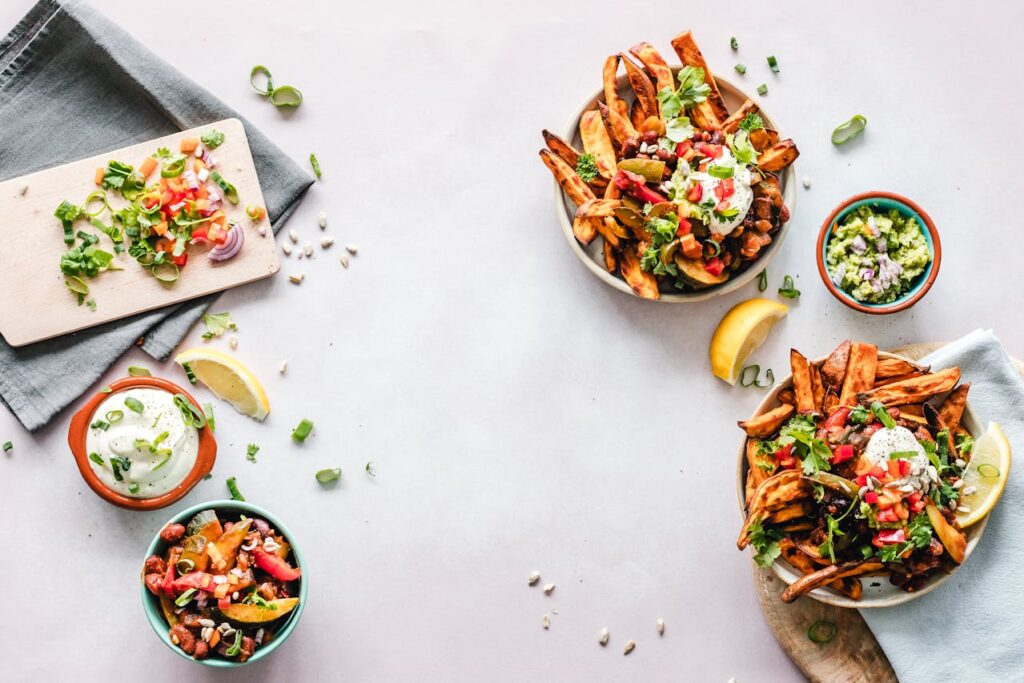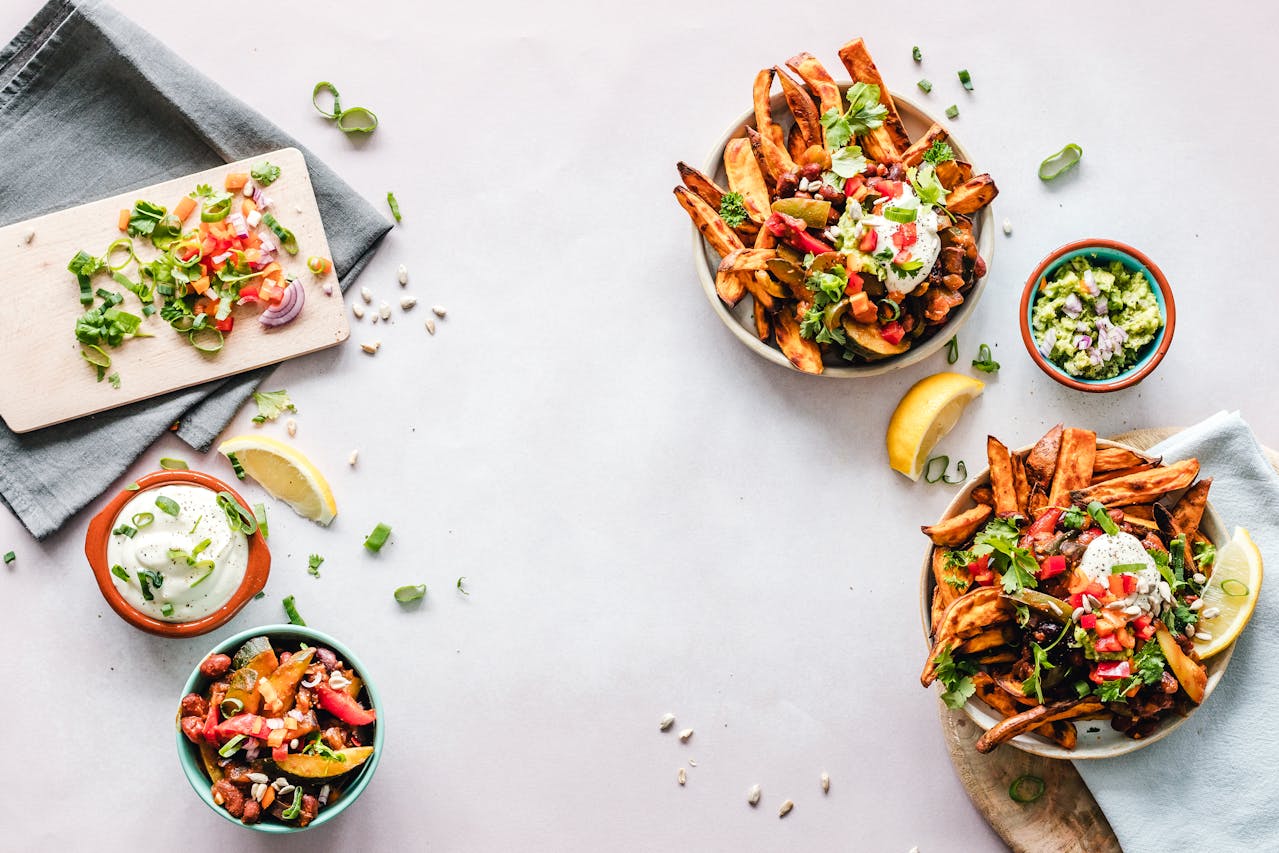Your morning sets the tone for your entire day, and what you eat for breakfast can make all the difference. Instead of reaching for sugary cereals or skipping breakfast altogether, why not fuel your body with nutrient-packed foods that energize, satisfy, and improve your overall health?
Here’s a breakdown of the top eight morning foods you should add to your routine every day.

1. Grapefruit: The Tangy Immune Booster
Starting your day with grapefruit is a smart choice. This vibrant citrus fruit is loaded with vitamin C, a powerful antioxidant that strengthens your immune system and protects your cells from damage.
Health Benefits of Grapefruit:
- Improves heart health: A 2006 study published in the Journal of Medicinal Food revealed that grapefruit helps lower cholesterol levels and improves insulin sensitivity.
- Aids in weight management: Grapefruit is low in calories and high in fiber, making it a great option for those looking to maintain a healthy weight.
How to Enjoy:
- Have half a grapefruit as a standalone snack.
- Add segments to your yogurt or salad for a refreshing twist.
Prefer alternatives? Oranges or other citrus fruits can provide similar benefits.
2. Avocados: Creamy and Heart-Healthy
Avocados are a true breakfast superstar. Packed with monounsaturated fats, potassium, and fiber, they help keep you full and satisfied.
What Makes Avocados a Must-Have?
- A 2013 review in the Critical Reviews in Food Science and Nutrition highlighted their ability to lower bad cholesterol (LDL) and improve heart health.
- Their versatility allows them to pair well with savory or sweet dishes.
Ways to Enjoy Avocados:
- Spread on whole-grain toast.
- Blend into a smoothie or mash into a delicious breakfast bowl.
- Pair with eggs for a well-rounded morning meal.
3. Leafy Greens: Packed with Nutrients
Spinach, kale, and other leafy greens offer a powerhouse of vitamins, including A, C, and K, as well as iron and calcium.
Why Include Leafy Greens?
- A 2017 meta-analysis in the International Journal of Epidemiology found that consuming more greens reduces the risk of cardiovascular disease and mortality.
- They’re rich in antioxidants that protect against cell damage.
How to Add Greens to Breakfast:
- Toss a handful into your morning smoothie.
- Sauté with olive oil as a side dish for eggs.
- Incorporate into a veggie-packed omelet or frittata.
4. Eggs: Nature’s Protein Powerhouse
Eggs are the ultimate breakfast staple, rich in high-quality protein, vitamins D and B12, and choline, which supports brain health.
The Science Behind Eggs:
- A 2008 study in the International Journal of Obesity showed that people who ate eggs for breakfast lost more weight than those who consumed a carb-heavy bagel.
- A 2018 study in the journal Heart found eating up to one egg per day is associated with a reduced risk of heart disease and stroke.
Serving Suggestions:
- Scrambled, poached, or boiled, eggs are incredibly versatile.
- Combine with veggies for an extra nutrient boost.
5. Oats: Heart-Healthy and Satisfying
Oats are a fiber-rich breakfast option that helps regulate digestion and supports heart health.
Key Nutrients in Oats:
- Beta-glucan, a type of fiber, lowers cholesterol and maintains healthy blood sugar levels.
- Antioxidants called avenanthramides have anti-inflammatory properties and may reduce blood pressure (Journal of Nutrition, 2015).
Creative Ways to Enjoy Oats:
- Classic oatmeal topped with fruit and nuts.
- Overnight oats with yogurt and berries.
- Add oats to smoothies or baked goods.
6. Berries: Tiny Nutritional Powerhouses
Blueberries, strawberries, raspberries, and blackberries are sweet and bursting with antioxidants, fiber, and vitamins.
Berry Benefits:
- A 2012 study in the Annals of Neurology found that consuming berries delays cognitive aging by up to 2.5 years.
- Berries also promote heart health, as highlighted in a 2013 study in the American Journal of Clinical Nutrition.
How to Incorporate Berries:
- Toss into yogurt, oatmeal, or smoothies.
- Enjoy fresh or frozen for convenience.
7. Greek Yogurt: Protein-Packed Probiotics
Greek yogurt is a breakfast favorite for its high protein content and probiotics that support gut health.
What Makes Greek Yogurt Special?
- A 2011 study in the New England Journal of Medicine linked yogurt consumption to less weight gain over time.
- Calcium in yogurt also improves bone health and reduces the risk of osteoporosis.
Serving Ideas:
- Top with berries, nuts, or granola for a balanced meal.
- Use as a savory topping for breakfast burritos or baked potatoes.
8. Nuts and Seeds: Energy-Dense Superfoods
Almonds, walnuts, chia seeds, and flax seeds are excellent sources of healthy fats, protein, and fiber.
Health Advantages:
- A 2013 study in the New England Journal of Medicine found that people who regularly consumed nuts had a 20% lower death rate.
- Nuts also support heart health and reduce the risk of stroke (Journal of the American Heart Association, 2018).
Easy Breakfast Additions:
- Sprinkle on oatmeal, yogurt, or smoothies.
- Spread nut butter on whole-grain toast.
- Enjoy a small handful as a quick snack.
Start Your Day the Right Way
Incorporating these eight nutrient-packed foods into your breakfast routine can set you up for a day filled with energy and vitality. Whether you’re in a rush or have time for a leisurely morning meal, options like grapefruit, eggs, and berries make it easy to prioritize your health.
For more expert advice and health tips, visit medicaltimes.io and explore trusted resources to keep your mornings healthy and balanced.
Reference Websites:
Top 10 FAQs
- Can I eat these foods every morning?
Yes, they are safe and beneficial for daily consumption. - Are there substitutes for Greek yogurt?
Yes, try plant-based yogurts like almond or coconut yogurt. - Can I prepare oats the night before?
Absolutely, overnight oats are a convenient option. - Is grapefruit safe for everyone?
Avoid if you take medications like statins, as it can interact with them. - Can berries be eaten frozen?
Yes, frozen berries are just as nutritious. - How much avocado should I eat?
Half an avocado per day is a healthy portion. - What’s the best way to cook eggs?
Any method works; just avoid adding excessive fats or oils. - Are nuts suitable for weight loss?
Yes, in moderation, as they’re calorie-dense but filling. - Can leafy greens be eaten raw?
Yes, but cooking can enhance nutrient absorption for some greens. - What’s the best nut for heart health?
Walnuts are particularly good due to their omega-3 content.
